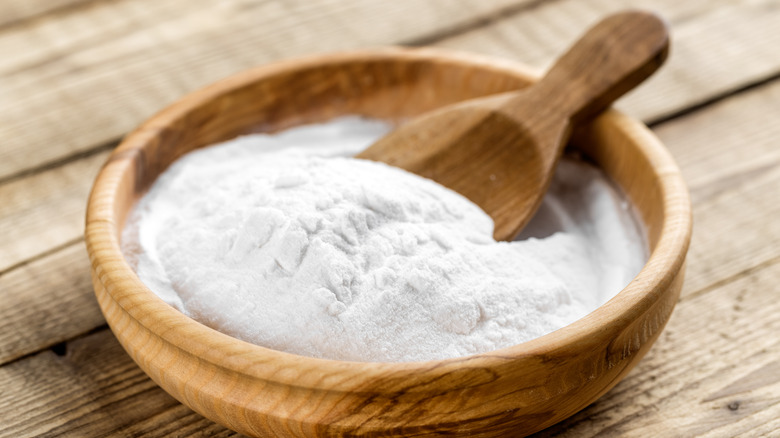Prevent A Humid House With One Handy Pantry Ingredient
A humid house can have several root causes, from poor ventilation to unexpected water leaks. Whatever the cause, the call to action is the same: You need to get rid of the moisture quickly. Luckily, you don't have to live in a humid house indefinitely. You can help remove some of the moisture from a room with the help of a pantry staple – baking soda. Baking soda is known for absorbing smells from spaces, but it works the same with moisture, too. That's because it is a hygroscopic substance, which means it naturally pulls water from the air and into its particles.
This is a great hack to try because you likely already have some sitting in your pantry, and if you don't, it's a very affordable ingredient that can be purchased at most grocery stores. Here's how you can implement this budget-friendly way to make your house more comfortable, and it doesn't involve expensive machines or even more costly handymen.
How to use baking soda to lower humidity
For this baking soda hack to be effective, you might need quite a bit of it. It won't be enough to have one small bowl of powder to suck all the humidity out of your house — rather, you will need several dispersed in your biggest problem areas. Simply pour the powder into several bowls and put them in your most damp rooms.
Depending on how humid and large the space is, you can distribute two to six bowls throughout a single space. For example, if your living room or garage has poor insulation, you can put several bowls in the corners of the room. If you have a small room — such as a powder room or closet — it can be sufficient to just leave one open box of baking soda in the space. Keep an eye on your bowls, and once the powder hardens, you will need to toss it out and replace it.
If you have pets, it's a good idea to cover the bowls with cotton cloths. This will curb their curiosity while still allowing the powder to absorb excess moisture. You can also try placing the bowls in higher areas, such as on top of bookshelves, cabinets, or dressers. Alternatively, if you can't put them on higher ground, try using heavier bowls that can't easily be knocked over.

